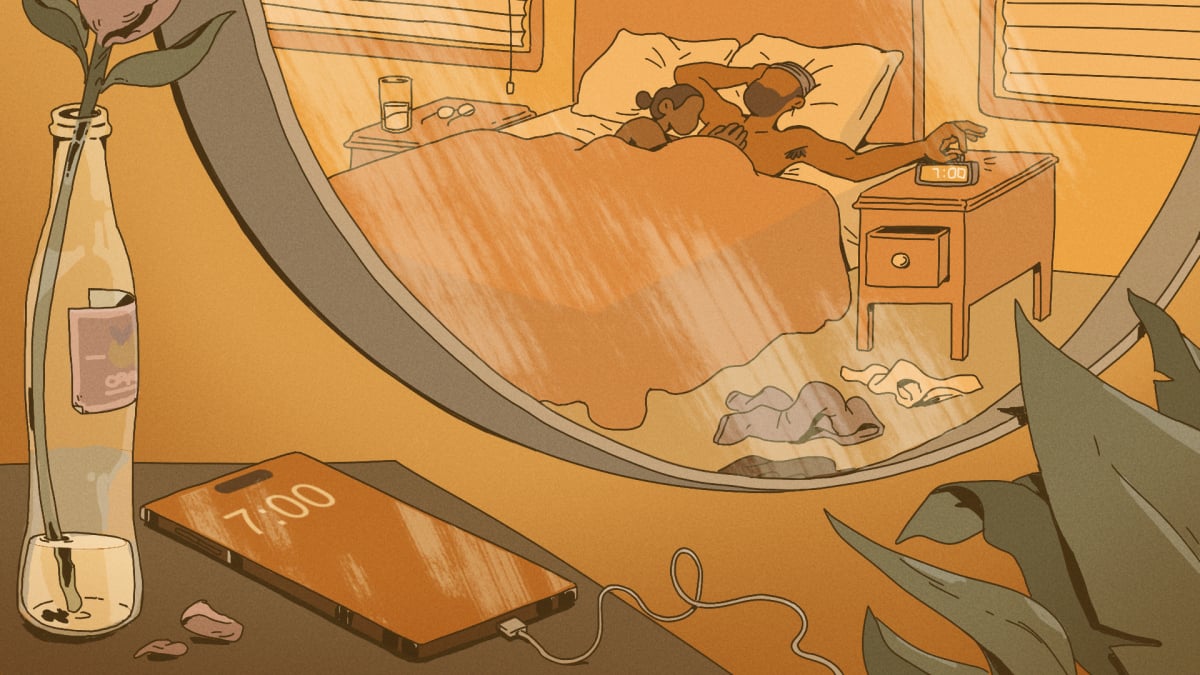For many of us, the word “ritual” özgü a lot of weighty significance to it. A religious ceremony, an unshakeable family tradition, or hallowed cultural rite might come to mind.
But according to Harvard Business School professor Michael Norton, rituals needn’t be age-old practices imbued with meaning. Instead, we can and should create our own, out of small but emotionally powerful acts. Even drinking the same tea from a beloved mug every day can have the power to boost our well-being.
Norton, author of The Ritual Effect: From Habit to Ritual, Harness the Surprising Power of Everyday Actions, says even he once considered rituals as formal behaviors, with deep roots in ancestry or religion — until he started researching them.
It’s not like a 50-step process that takes an hour
He found that people improvise their own rituals all the time — often to mark a period of the day or to motivate themselves. Examples include tying their shoes a certain way before a run, lighting a set of candles before dinner, and reciting a mantra before important work meetings.
Even those of us who practice more formal rituals such as prayer are often improvising the details, Norton found.
Instead of letting them happen subconsciously, Norton wants people to identify the rituals they may not otherwise recognize.
“It’s not like a 50-step process that takes an hour,” Norton says. “It really is just taking a little time and space to reflect and immerse yourself in it, and get that extra joy.”
Those meaningful acts can positively enhance their emotional experience, leading to what he calls “emodiversity.”
That’s not as glum a concept as it might sound to some. It’s about the level of variety in people’s emotions, such as being able to feel contentment, fear, gratitude, sadness, and awe. Your level of emodiversity predicts well-being, according to Norton’s research. Rituals, even seemingly mundane ones, can help people access a wider range of emotions.
A ritual can be a bulwark against impulse-driven digital behaviors that tend to make us feel scattered and less connected, like doomscrolling. The right ritual at the right time, can stop someone from reaching for their phone to do something that’s ultimately an unfulfilling distraction.
“When people reach for their phone now, they’re reaching for their phone in order to reach for their phone,” Norton says. “You literally don’t have any goal in mind at all.”
Ritual vs. habit
While habits and rituals are closely linked, there’s a key difference. A habit is something people do because they must, such as brushing their teeth or showering.
A ritual contains more meaning. It can be how someone gets ready for the day, like the order in which they brush teeth and shower. That person may feel “off”, somehow, if the two activities switch places.
Or take the tea drinker with the favorite mug, that preferred blend or brew, along with the vessel, may evoke happy memories or a sense of contentment that doesn’t arise when drinking whatever was available at the coffee shop from a paper cup.
“When things start to get ritualized,” Norton says, we bring “more emotion and more meaning to them.”
Rituals that decrease screen time
Reaching for your smartphone is a ritual in its own right, Norton says. But that doesn’t always lead to the emotion enhancement he’d like more people to experience.
For example, a pop-up reminder about the photos taken a year ago of your then-infant may prompt you to start scrolling mindlessly through photos — all while your now-toddler tugs at your shirt for attention.
Reducing screen time, Norton says, requires replacing that ritual with another.
Before you start, it’s worth figuring out which non-screen rituals you already employ, and what gives them meaning. You may notice a pattern. Is movement or stillness important to your rituals? How about music, objects, loved ones?
Then try to identify when the gravitational pull toward your phone is strongest. Is it when you’re waiting in line at a store, trying to keep boredom at bay? Maybe it’s whenever you feel a sudden pang of anxiety, uncertainty, or dread, or part of a subconscious revenge procrastination when you go to bed at night.
Your ritual strategy may differ depending on the scenario. But whatever the case, here are three tactics Norton recommends:
1. Create distance from your phone.
Ever wake up and immediately grab your phone before acknowledging your partner or fully opening your eyes? You can combat this by starting a different ritual. If you’re sharing a bed with someone you love, a moment of connection or physical affection would make for a nice ritual.
When sleeping solo, try pausing before picking up the phone. That pause could involve counting to your favorite number or noticing the sounds.
The key to success, Norton says, is placing your phone elsewhere, like across the room. If the phone is still within reach, in the same reliable place you always leave the device, it’ll be hard to replace one ritual with another.
To guard against mindless moments of phone usage during your day, like the line at the store, Norton recommends putting your phone in a different pocket than usual. This will create just a little bit friction, offering you the chance to stop yourself before your reflexes kick in.
More ambitious rituals include leaving your phone behind when you go out, putting it in a hard-to-reach location, or simply powering it off altogether.
2. Build in a social component.
It’s difficult to reduce screen time if you’re with another person who doesn’t have the same goal, Norton says. So if possible, make a ritual out of putting your phone away when spending time with a loved one.
For example, you could put your devices in a zip-up pouch during meal times. Try making one of your outings a screen-free event. If you know you’ll need your device, trying leaving it on silent or “do not disturb” for an agreed-upon period. (The Focus feature on iPhones, and Focus mode on Android devices, makes this ritual easier.)
Parents or caregivers who might need to be contacted for an emergency can share in advance how they can be reached.
3) Take the phone out of a ritual that already exists.
Chances are your phone is already part of a meaningful ritual, such as morning coffee or pre-bedtime wind down. If you like that ritual but not how scrolling on your phone dominates it, replace your device with something else — like reading a book or magazine instead, or journaling on paper.
“With a phone, if you think about reaching for it mindlessly, you can think about putting something else there that you could reach for,” Norton says.
These little changes, he added, “can help to break the loop.”
Topics
Mental Health
Social Good




